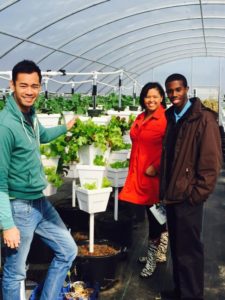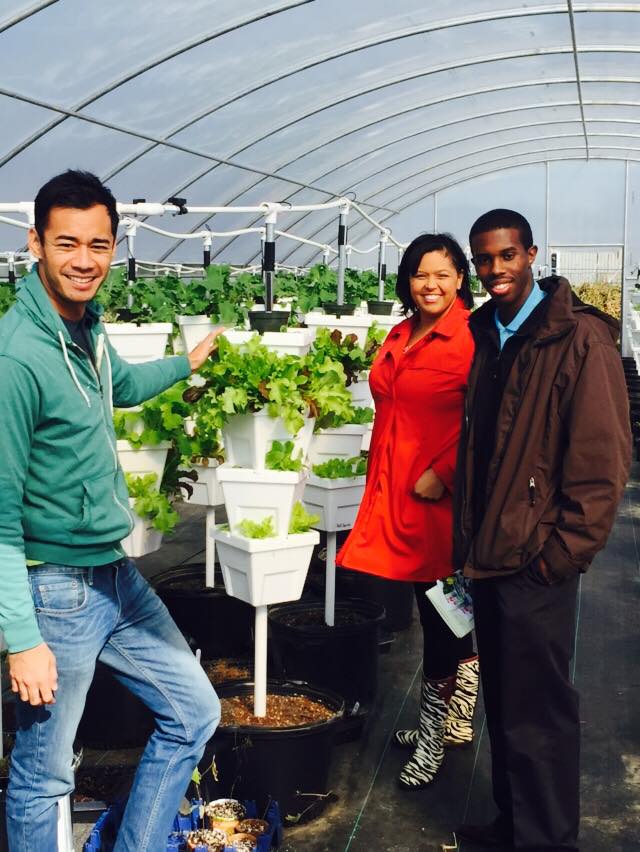
By Tina Dirmann
BCBSLA Foundation Staff Writer
If you’ve been reading our blogs, then you know we’ve been talking a lot about Challenge for a Healthier Louisiana “springboard” projects. These are not projects we paid for, planned for, rallied for… No, these are simply projects that came about because fellow community members saw our work and became, well… Inspired.
And since we are on the eve of Thanksgiving, we wanted to show how thankful we are to these support projects. Because these programs are the new sprouts in a movement we planted the seeds for just over two years ago. To see this new wellness movement take hold in our state is remarkable, given Louisiana’s spotty health record.
Explains Blue Cross and Blue Shield of Louisiana Foundation Executive Director Christy Reeves, “We wanted to change the culture in Louisiana when it comes to health and fitness. And we hoped the $10.2 million in grants we delivered across the state would spark a movement toward that change. And now, to see neighbors and community leaders catching on and creating their own wellness projects, it’s very special. It’s a sign that change is happening in our state. And we can be proud of that because I believe that if not for challenge grant, many of these new ideas and programs would not be happening. And we couldn’t be more impressed by the people working alongside us. People like Ebony.”
So, we decided to highlight our newest Challenge Grant friend, Ebony NeNe Williams, who took it upon herself to launch LuLu’s Food Hub & Urban Farm Learning Center in New Iberia’s impoverished west end. Why would she take on such a task? “I just saw a need here and thought I could help,” Williams said. Impressed yet? We were.
Q: How did you come up with the idea for a food hub?

A: Before I started doing this, a couple of farmers contacted me to do some of their sales. Most farmers are not salesman. And as a problem solver, that’s a need I could solve for them.
Q: But why did they contact you?
A: I’ve worked for a couple of food companies (Kellogg, Performance Food Group), so I now how food distribution works and I know how to deal with contracts and food chains. I also know how to do new age farming – aquaponics, hydroponics. I know how they operate. And I know it’s something that’s new and just starting to be accepted in this part of the country.
Q: You also own your own farm land, right?
A: Yes. I wanted to start a hydroponic farm on eight acres of land my family owns in Beaux Bridge. We have 8 acres just sitting there. So I thought, why not put that to use? I started researching and a family member said to me, “Did you know there’s a hydroponic farm on Hopkins St in New Iberia?”
Q: And by farm, you mean the three co-ops that, of course, were been made possible by Challenge Grant dollars. Our funds helped more than double the number of towers and greenhouses in Iberia Parish, as part of our West End Health and Wellness initiative.
A: If that was not done, so much of what’s happening now in this area would never have happened. As funny as it sounds, just yesterday I was looking at baby bok chou and radishes grown in the new towers. And I thought, in that area, they never even would have known what bok choy or spicy arugula is. But this has opened a whole new appreciation for something you never knew you could appreciate. If not for that Challenge Grant money, none of that would be possible. No need for flash markets and no need for a food hub in that area. Every layer of exposure helps.
Q: And it was through these new co-op farms that you met Phanat Xanamane, who runs the Iberia Community Garden Co-op. Tell me how that was an important connection for you.
A: Phanat introduced me to the guy who rented our food hub space to us. He said we could rent it for 6 months for free! And after that, we’ll move onto a renting basis. We started in August.
Q: And what was this space before you began renting it out?
A: It was a nightclub in the city, which closed up two years ago. There are also two houses on the same property that are empty, so, we also have access to those. And what’s great about this location, it’s on the divide in the city. There’s a huge social and economic divide in New Iberia. And that nightclub falls right on that divide. The address is actually 239 West Persian St. And that area is complete west end, just one block off Hopkins St.
Q: Let’s note, too, that Hopkins Street is so meaningful to this community. In terms of history, it used to be a thriving street, full of commerce serving the largely minority community. But now it’s fallen on hard times, over the years, with lots of empty and abandoned buildings. And certainly no Whole Foods or giant grocery store chains of any kind. Which makes what you’re doing all the more important. You are serving a need, with food access, and doing it in a way that adds life back to this area.
A: One of the big things for this area, in fact, is that there is no public transportation in New Iberia. That means grocery shopping is difficult. Especially when you consider that 72% all food stamps is in that area.But somehow, those residents have to pay to leave the area, go shopping, and find a way home. That also means none of that money returns to that area. For too long, the only thing they have had nearby are liquor stores, corner stores… And now, hydroponic gardens.
Q: How are you funding the makeover — from nightclub to food hub! I’m assuming that’s going to take a lot of elbow grease from volunteers, and cash!
A: We need dollars to do it. Just to get up and running, we need $18,742. So far, we’ve raised $525.00 from our funding campaign (GoFundMe – Lulu Food Hub). It’s a good step. With that, we turned on the lights and water. Now we are trying to fix up the inside. When we first got in there, we discovered mold inside. So, we’ve been pulling off sheetrock and mirrors — because there were mirrors on every piece of the wall! But we actually got tin from an old barn donated to us, which we painted and put up in place of sheetrock. We’re working with materials we have. I’ve also been personally funding this project.
Q: Wow, so impressive, Ebony. You are clearly passionate about making this change happen. Are you getting much community support?
A: I am seeing a lot of larger community support. People want to see good things happen, even if they don’t have what it takes to get it happening. And groups like Envision the Berry and the Iberia Development Foundation are very supportive of it. I’m also educating myself to see what help I can access, like USDA grants for economic development projects.
Q: Once the doors are open for business, do you think there will be enough business from the local community to sustain the food hub permanently?
A: Well, we know the vegetable sales also are not going to sustain the place. But I see this as so much more than a place to buy produce. It has to be an education center. It can be a business incubator. A warming station for new ideas. I can see pop up kiosks, for example. So, people can’t cook in there, but we can have warming stations to sell healthy meals and homemade foods. We wouldn’t charge a fee to be there. Maybe just a percentage on all food sold. That allows someone to start an enterprise without any up front cost.
Q: Are you worried about getting people to use the food hub, once it’s open?
A: No. The people in this community are already excited and they don’t even know what exactly they’re excited for. But it’s kind of like the Apple phone, right? You have to introduce your product so people can understand how much they need it. And once you introduce the product, that’s when people realize they can’t live without it!
** NOTE: Williams would like to mention that none of her work would be possible without the generous support of John Tauriac & the Tauriac family, located in New Iberia. The Tauriacs own the old nightclub property and, according to Williams, “understand the concept of social entrepreneurs.”
